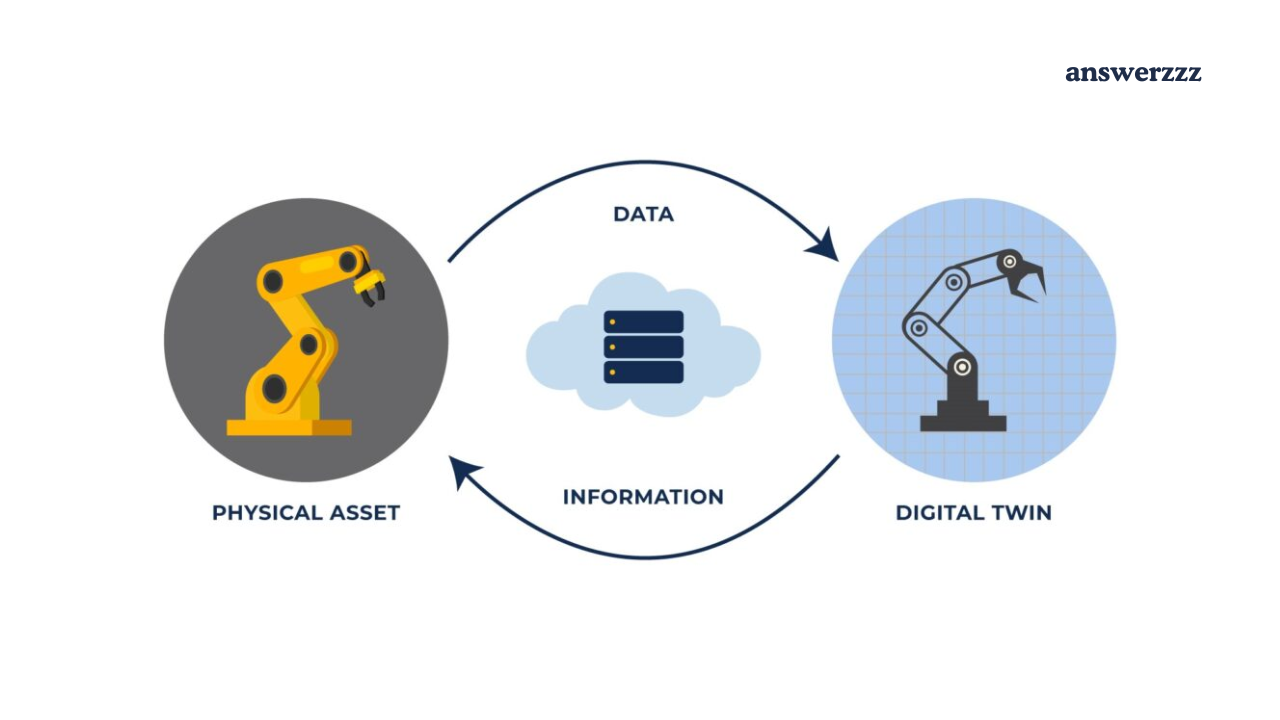As we approach 2025, technology continues to evolve at an unprecedented pace, reshaping industries, economies, and societies. Among the myriad of advancements on the horizon, several emerging technologies stand out for their transformative potential. Artificial intelligence (AI), quantum computing, and other groundbreaking innovations are set to revolutionize the way we live and work. In this article, we will explore these cutting-edge technologies, discussing their current state, potential impact, and what we can expect shortly.
1. Artificial Intelligence (AI): Expanding Frontiers

Artificial intelligence has already made significant strides in recent years, but 2025 promises to be a pivotal year for AI. The convergence of machine learning, natural language processing, and computer vision has brought AI to the forefront of technological advancement, and its applications are expanding across various sectors.
1.1 AI in Healthcare
One of the most exciting areas where AI is making a profound impact is healthcare. In 2025, AI-powered diagnostic tools and personalized treatment plans will become more commonplace. AI algorithms can analyze vast amounts of medical data, including patient records, medical images, and genetic information, to provide accurate diagnoses and recommend optimal treatments. For example, AI can help identify early signs of diseases like cancer, allowing for timely intervention and improved patient outcomes.
Moreover, AI-driven drug discovery is accelerating the development of new medications. By analyzing molecular structures and simulating chemical reactions, AI can identify potential drug candidates faster and more efficiently than traditional methods.
1.2 AI in Autonomous Systems
Another area where AI is set to make significant strides is in autonomous systems, including self-driving cars and drones. In 2025, we can expect autonomous vehicles to become more prevalent on our roads, with AI playing a crucial role in ensuring safety and efficiency. AI-driven systems will enhance vehicle navigation, object detection, and decision-making, making self-driving cars a viable mode of transportation for everyday use.
Beyond transportation, AI-powered drones will revolutionize industries such as logistics, agriculture, and disaster response. These autonomous aerial vehicles will be able to deliver goods, monitor crops, and assist in search and rescue missions with minimal human intervention.
1.3 AI Ethics and Regulation
As AI becomes more integrated into our daily lives, ethical considerations and regulatory frameworks will be increasingly important. In 2025, there will likely be more discussions around the responsible use of AI, including issues related to bias, privacy, and accountability. Governments and organizations will work together to establish guidelines that ensure AI is developed and deployed in ways that benefit society while minimizing potential harm.
2. Quantum Computing: Unlocking New Possibilities
Tech 2025: The Next Wave of Innovation and What It Means for You
While AI has garnered much attention, quantum computing is another emerging technology that could have a profound impact on various industries. Quantum computing leverages the principles of quantum mechanics to process information in ways that classical computers cannot. Although still in its early stages, quantum computing has the potential to revolutionize fields such as cryptography, materials science, and drug discovery.
2.1 How Quantum Computing Works
Quantum computers operate based on quantum bits, or qubits, which can exist in multiple states simultaneously thanks to a phenomenon known as superposition. This allows quantum computers to perform complex calculations at speeds exponentially faster than classical computers. Additionally, qubits can become entangled, meaning the state of one qubit is directly related to the state of another, even if they are separated by large distances. This property, called quantum entanglement, enables quantum computers to solve certain problems more efficiently than their classical counterparts.
2.2 Applications of Quantum Computing
In 2025, we can expect quantum computing to start delivering tangible results in several industries:
2.2.1 Cryptography
Quantum computing poses both a threat and an opportunity for cryptography. Traditional encryption methods, such as RSA, rely on the difficulty of factoring large numbers, a task that quantum computers could perform in a fraction of the time compared to classical computers. This means that many of the encryption protocols used to secure data today could become obsolete once quantum computers reach a certain level of maturity.
However, quantum cryptography, which uses the principles of quantum mechanics to secure data, is emerging as a solution to this problem. Quantum key distribution (QKD) allows two parties to share encryption keys with a high level of security, as any attempt to intercept the key would disturb the quantum state and alert the parties involved.
2.2.2 Drug Discovery and Materials Science
Quantum computing will also play a crucial role in drug discovery and materials science. By simulating molecular interactions at the quantum level, researchers can gain insights into complex chemical reactions that are currently impossible to model with classical computers. This will accelerate the discovery of new drugs and materials, leading to breakthroughs in medicine, energy, and manufacturing.
2.2.3 Financial Modeling
In finance, quantum computing could revolutionize risk analysis and portfolio optimization. Financial markets are inherently complex, with numerous variables influencing asset prices. Quantum computers’ ability to process vast amounts of data and perform complex calculations could enable more accurate predictions and better decision-making in areas such as investment strategy and risk management.
2.3 Challenges and the Road Ahead
While the potential of quantum computing is immense, there are still significant challenges to overcome. Quantum computers are highly sensitive to environmental disturbances, which can cause errors in calculations. Researchers are working on developing error-correcting codes and improving the stability of qubits to make quantum computers more reliable.
By 2025, we may not yet see widespread commercial use of quantum computers, but significant progress will be made toward overcoming these challenges. Companies and governments are investing heavily in quantum research, and we can expect to see more breakthroughs in the coming years.
3. Beyond AI and Quantum Computing: Other Emerging Technologies

While AI and quantum computing are two of the most talked-about technologies, there are several other innovations that will shape the future in 2025 and beyond. These technologies, though at different stages of development, hold the potential to disrupt industries and improve our quality of life.
3.1 5G and Beyond: The Future of Connectivity
The rollout of 5G networks is already underway, but by 2025, we can expect even more advanced wireless technologies to emerge. 5G offers faster speeds, lower latency, and increased connectivity, enabling new applications such as remote surgery, autonomous vehicles, and smart cities. However, researchers are already looking ahead to 6G, which could offer even greater speeds and enable new technologies such as holographic communication and immersive virtual reality experiences.
3.2 Biotechnology and Genetic Engineering
Biotechnology and genetic engineering are poised to make significant advancements in 2025. CRISPR-Cas9, a revolutionary gene-editing technology, has already shown promise in treating genetic diseases and developing new therapies. In the coming years, we can expect more breakthroughs in gene editing, including the potential to cure inherited disorders and enhance human capabilities.
Moreover, biotechnology will play a crucial role in agriculture and sustainability. Genetically modified crops that are resistant to pests and environmental stressors could help address food security challenges in a world facing climate change and population growth.
3.3 Augmented Reality (AR) and Virtual Reality (VR)
Augmented reality (AR) and virtual reality (VR) technologies are set to become even more immersive and widespread by 2025. AR overlays digital information in the real world, while VR creates fully immersive digital environments. These technologies are already being used in entertainment, gaming, education, and training, but their applications will expand further.
In healthcare, for example, AR and VR can be used for surgical training, rehabilitation, and mental health treatment. In education, these technologies can create interactive learning experiences that engage students in new and exciting ways.
3.4 Renewable Energy and Energy Storage
As the world continues to grapple with climate change, renewable energy technologies will play a critical role in reducing carbon emissions and transitioning to a more sustainable future. Solar, wind, and hydropower are already making significant contributions to the global energy mix, but advancements in energy storage will be key to their widespread adoption.
By 2025, we can expect more efficient and cost-effective energy storage solutions, such as advanced batteries and hydrogen fuel cells. These technologies will enable renewable energy sources to provide consistent power even when the sun isn’t shining, or the wind isn’t blowing.
3.5 Space Exploration and Commercialization
Space exploration is entering a new era, with private companies like SpaceX and Blue Origin leading the charge. In 2025, we can expect more ambitious missions to the Moon, Mars, and beyond. The commercialization of space, including space tourism and asteroid mining, is also on the horizon.
Moreover, advancements in satellite technology will improve global communications, weather forecasting, and environmental monitoring. These innovations will have far-reaching implications for industries ranging from telecommunications to agriculture.
As we look ahead to 2025, it’s clear that emerging technologies will continue to reshape our world in profound ways. Artificial intelligence, quantum computing, and other cutting-edge innovations hold the potential to revolutionize industries, improve healthcare, enhance connectivity, and address global challenges such as climate change and food security.
While there are still challenges to overcome, the progress made in these fields is a testament to human ingenuity and our relentless pursuit of knowledge. As these technologies evolve, they will unlock new possibilities and create opportunities for growth, innovation, and a better future for all.




